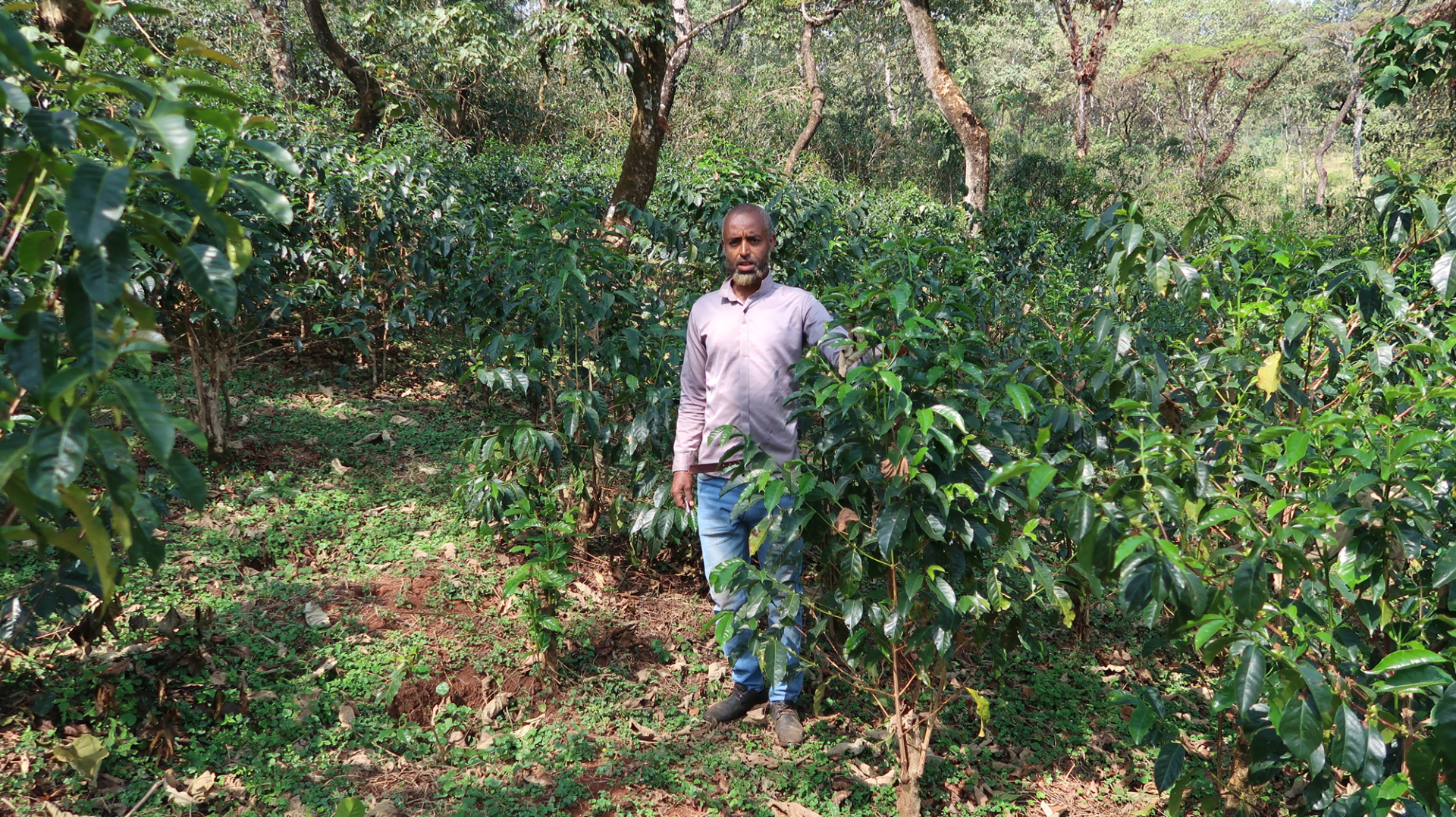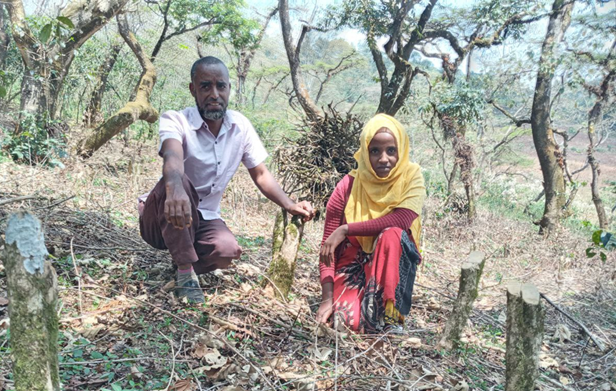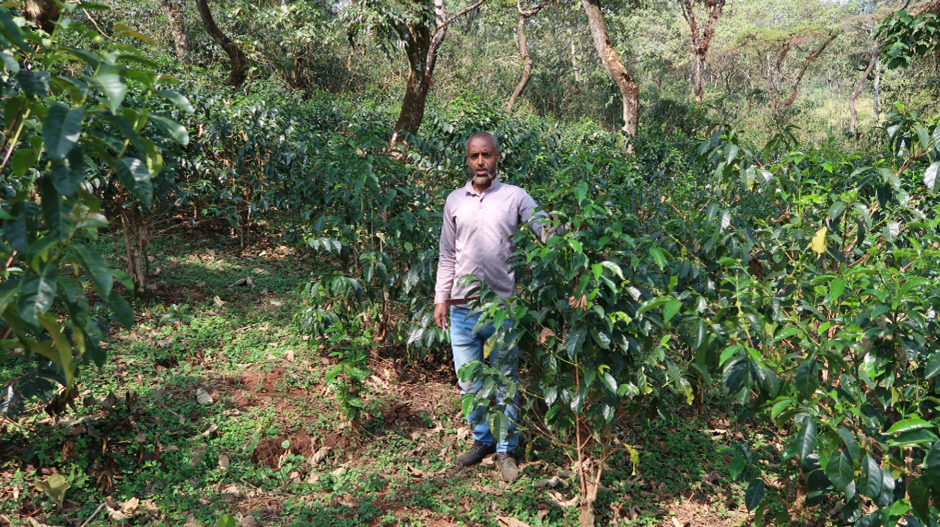Exploring sustainable business models for coffee tree rejuvenation in Ethiopia
Exploring sustainable business models for coffee tree rejuvenation in Ethiopia

As part of a series of knowledge events on private sector engagement, the World Bank’s BioCarbon Fund Initiative for Sustainable Forest Landscapes (ISFL) and partner TechnoServe recently co-hosted a virtual workshop to share lessons learned from successful coffee tree rejuvenation practices in Ethiopia.
The objective of the September 2024 event, “Exploring business models for coffee tree rejuvenation in Ethiopia”, was to share best practices, experiences, and lessons learned from ISFL-funded work focused on encouraging coffee tree stumping - an agricultural practice involving pruning trees significantly and giving them two to three years to rejuvenate. While this practice has proven effective in increasing coffee yields threefold, smallholder farmers are sometimes reticent to forego income while the trees grow back.
In this context, the event explored what combination of incentives are most effective in attracting the participation of farmers and scaling up these rejuvenation practices. More than 50 participants joined the event from a wide range of companies and organizations along the coffee supply chain, including coffee importers and exporters in Ethiopia, along with roasters in the U.S. and Europe.
During the event, participants were divided into three groups—roasters, importers, and exporters—and asked to identify what would drive each group to invest in rejuvenation practices. This interactive session helped to highlight different strategies that could be used to increase private sector engagement in coffee rehabilitation efforts.
It also underscored how tree rejuvenation, among other agricultural intensification practices, can play an important role in reducing forest encroachment, deforestation and forest degradation.
Participants made several observations and recommendations to incentivize and scale up coffee exporters’ participation in coffee tree rejuvenation, including:
- Exporters are more likely to invest if they can sell the coffee for higher prices that are paid for better-quality coffee.
- Strengthening relationships along the value chain and providing training to growers can significantly enhance the overall quality of coffee.
To incentivize coffee Importers, participants made several recommendations, including:
- Relationships between roasters and producers should be strengthened to foster long-term stability in supply and demand.
- The steady availability of coffee should be ensured from regions where investments have been made.
- Efforts should be coordinated at the national level to drive greater efficiency and impact across the coffee sector.
And for coffee roasters, participants suggested a number of ways to incentivize engagement in coffee tree rejuvenation, including:
- Ensuring a sustainable future supply by addressing concerns in the current coffee market about the consistent availability of high-quality beans.
- Creating and increasing demand for sustainably sourced coffee among consumers.
"Scaling training and incentives to help more Ethiopian coffee farmers stump their coffee trees will bring huge benefits to the Ethiopian coffee industry as production and foreign exchange earnings grow,” said Paul Stewart, TechnoServe’s Global Coffee Director, who participated in the virtual event.
“Bringing together coffee exporters, traders, roasters and the public sector who are interested in specific coffee regions can scale initiatives that reach hundreds of thousands of farmers," added Stewart.
ISFL’s approach to private sector engagement
The ISFL, through its private sector engagement approach, aims to catalyze change in key agriculture value chains to achieve emission reductions. Private sector work by the ISFL focuses on proving the viability and scalability of innovative business and financial models that could lead to sustainable approaches, as well as ensuring an enabling environment for private investment. This approach aims to motivate private sector actors to replicate these models to deliver sustainable products and services.
In this context, the ISFL’s South-South knowledge exchanges, including the recent virtual event on coffee tree rejuvenation in Ethiopia, aim to identify learning across ISFL programs. They also seek to contribute to scaling up impact by providing information on innovative approaches to other countries and regions.
Learn more on ISFL’s program in Ethiopia
More about the ISFL’s private sector engagement approach
Download the ISFL’s recently released 2024 Annual Report


